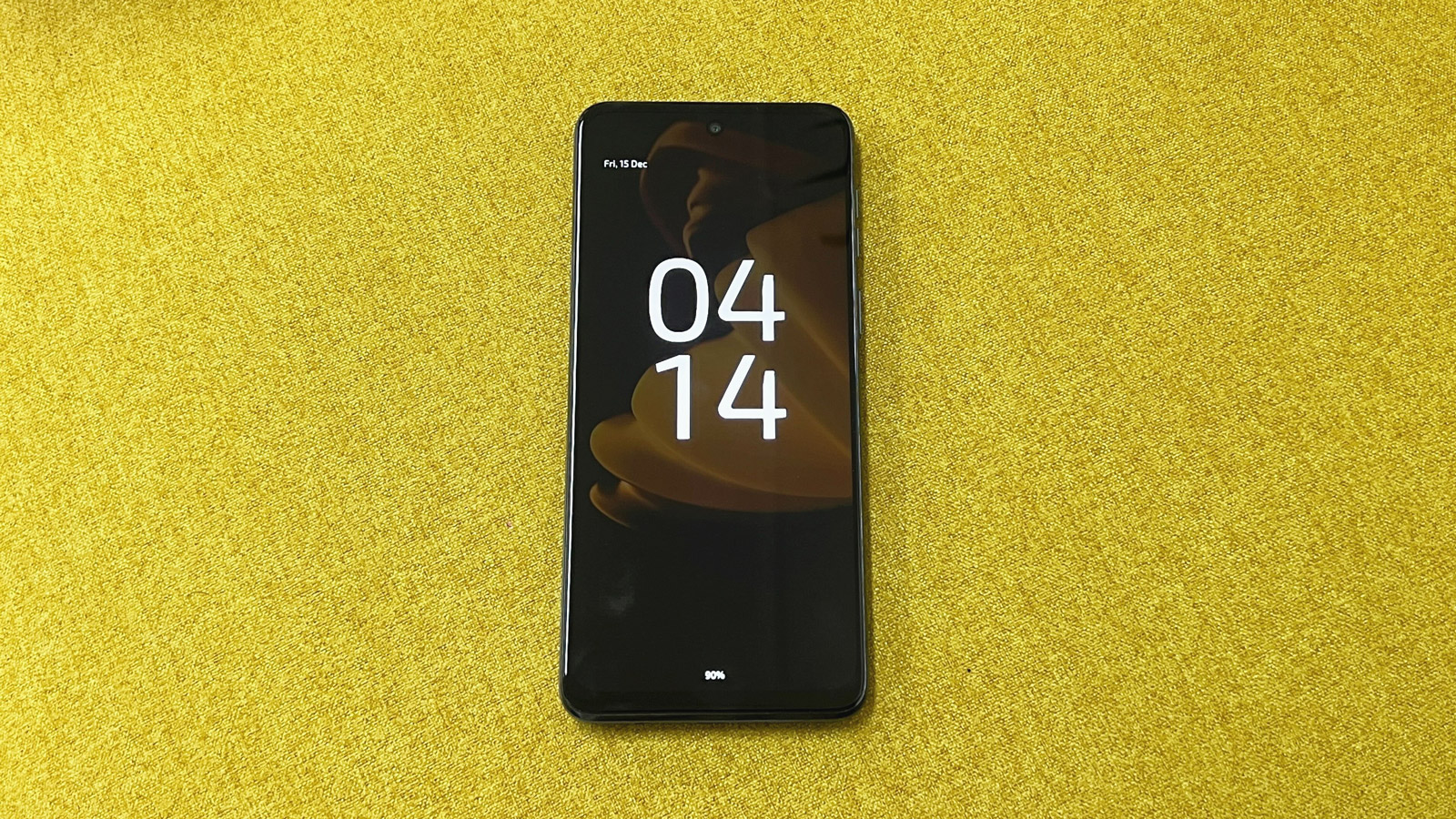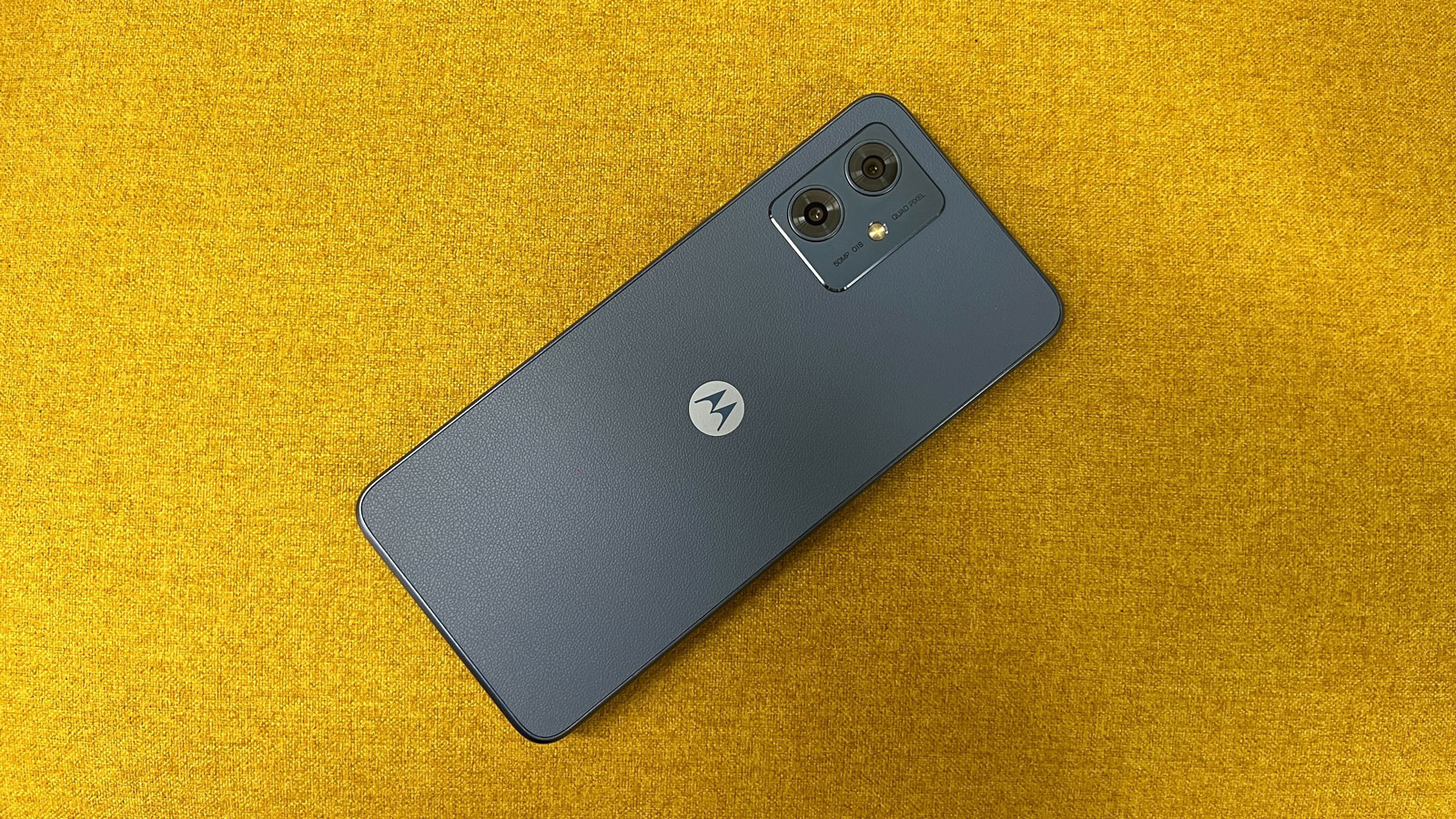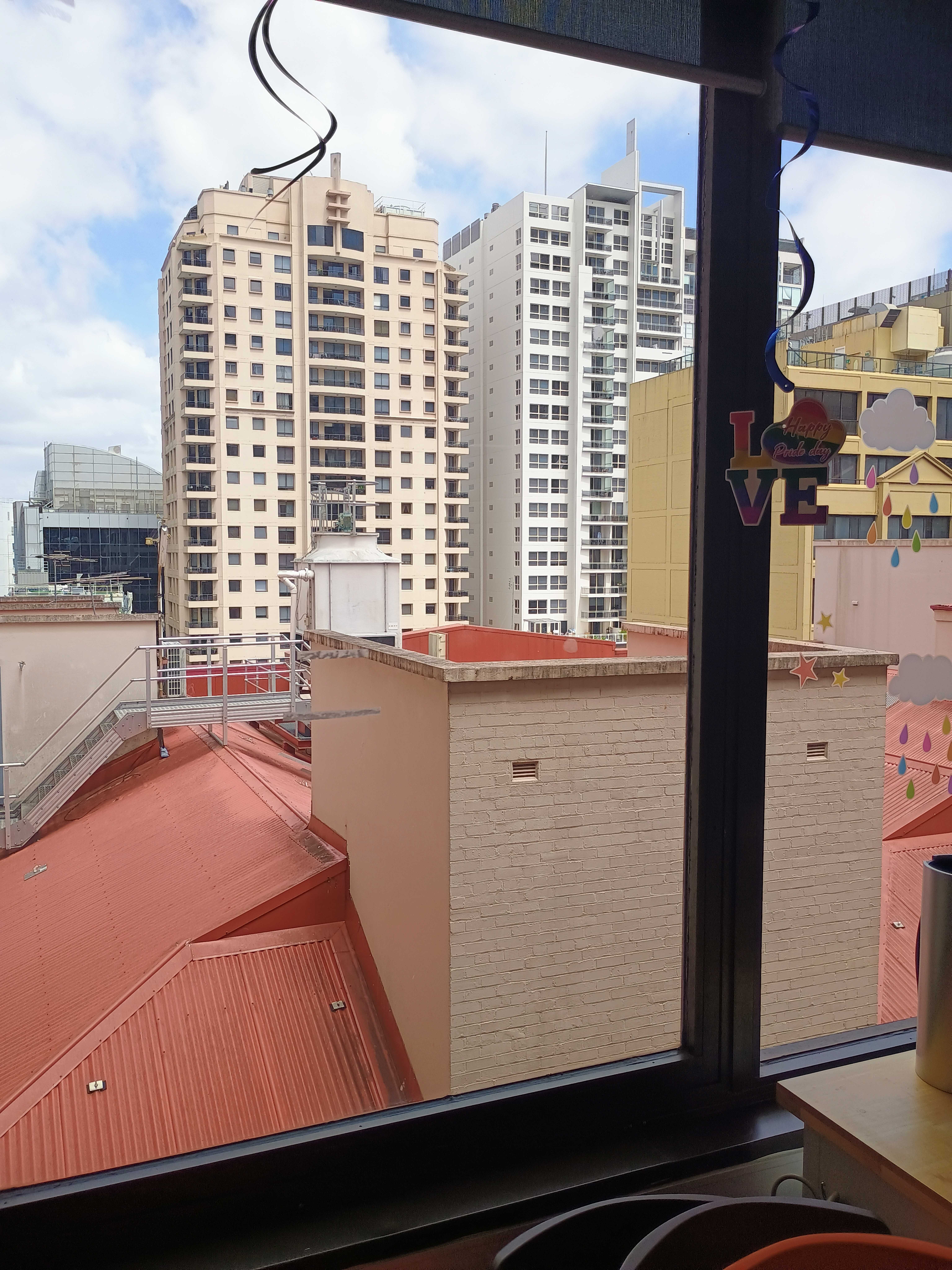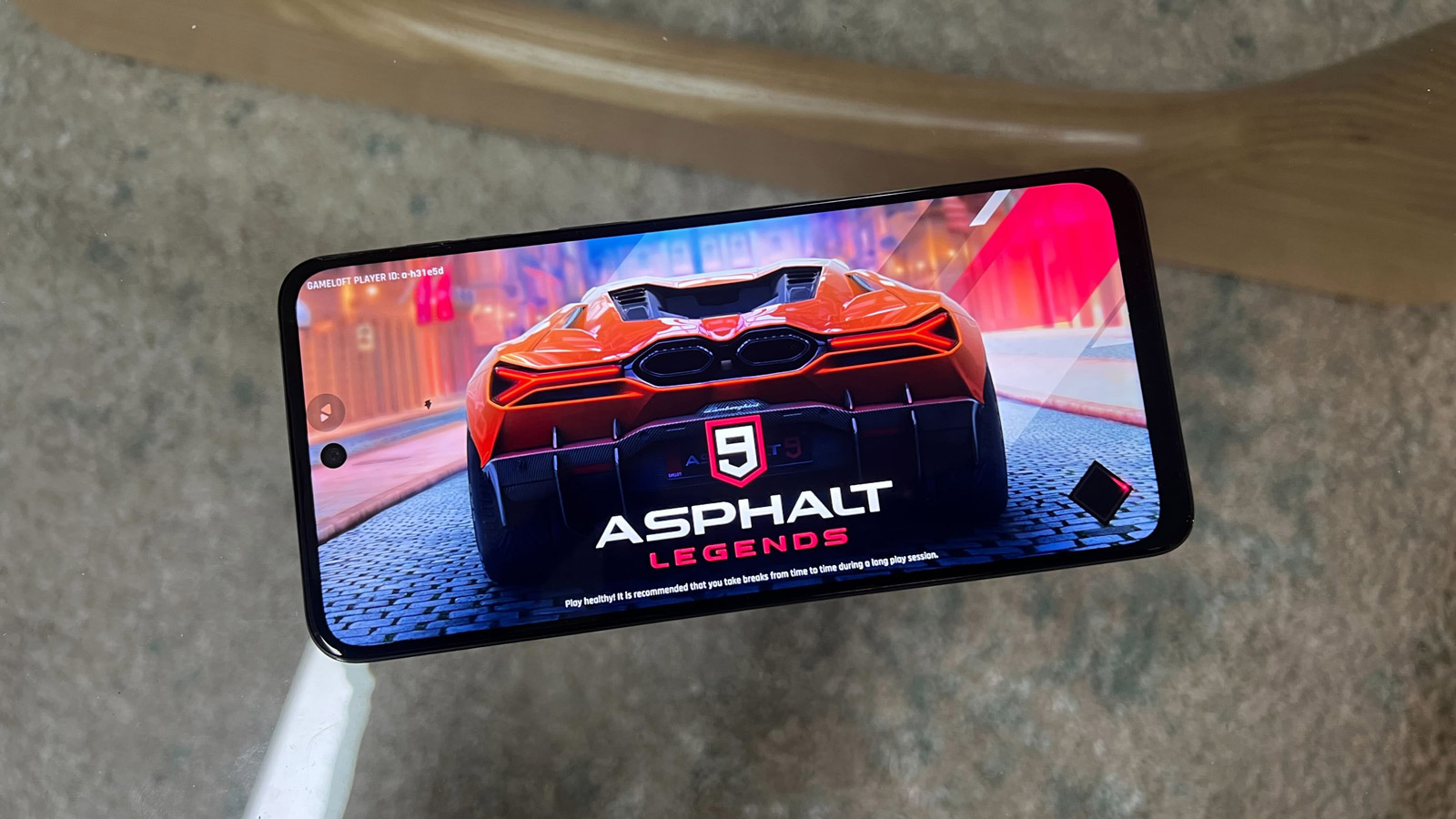
Motorola Moto G54 5G: One-minute review
In the Moto G54 5G, Motorola has in some ways gone back to the drawing board. There is still the overall mission to offer customers the best possible mobile experience for as little money as possible, but in the G54 5G, I think it’s genuinely achieved it. I say that in the sense of, with the previous model in this series, the Moto G53 5G, there were too many compromises for one to make. In this latest model,Motorola has properly cracked it, and I feel it not only delivers an experience that belies its price, but it gives phones a fair bit more expensive than it a decent run for their money.
Yes, Motorola has now done a complete 180 since the G53 and made improvements across the board, to deliver an undeniably affordable smartphone that I struggled to find major fault with. And the company is actually charging less for this latest model than it did for the G53. That alone should be lauded.
No, of course the Moto G54 5G still isn’t going to trouble the four-figure flagships of the world, but the more mid-range phones? They should certainly be worried. For anyone looking for an affordable phone, I can’t personally think of anything better than this. The screen is finally full HD+, the processor offers a decent amount of performance (super intense gamers should still tread with caution) and the camera takes noticeably improved images compared to its predecessor. I also think it looks fantastic, and did plenty enough to make me rethink what a ‘budget’ phone is supposed to look like.
Having reviewed the earlier Moto G53 5G myself, I approached taking temporary ownership of the G54 5G with caution. And yes, I definitely made pre assumptions in my mind that I was going to be in for much of the same ride, just maybe in a shiny new colour. Well shouldn’t I now just eat my shoes. I was wrong and I applaud Motorola for producing a genuinely good device for not a lot of money.
Motorola Moto G54 5G review: Price & availability
- List price of £180 / AU$299
- No direct US equivalent again
Availability of Motorola devices continues to be inconsistent, depending on where you are in the world. As we’ve seen with previous Motorola smartphones, the Moto G54 5G is available in the UK and Australia, but isn’t available in the US, not by the same model name anyway. In the UK, you can expect to pay £180, £10 less than the previous model, while in Australia the Moto G54 5G receives a AU$30 discount over its predecessor, coming down to AU$299.
In the US, the Moto G Power 5G appears to be the most similar on paper, and this can be bought for $199.99 (down from $299.99) at the time of writing.
The fact that Motorola has taken what was already an affordable phone and made it cheaper is seriously impressive. When I reviewed the Moto G53 5G I gave it a value score of 4 out of 5, and given the G54 5G is cheaper and offers much-improved specs, it has to receive a 5 stars this time around.
• Value score: 5/5
Motorola Moto G53 5G review: Specs
Motorola Moto G54 5G review: Design

- Multiple colors, including vegan leather option
- Thinner and lighter than previous model
- Not always the most ergonomical
The majority of wallet-friendly phones now follow a very similar design language. Namely, plastic build, large-ish bezels (compared to the very best phones at least) and, in my experience anyway, they’ve all been lightweight and come in a selection of unexciting colors.
And, while the Moto G54 5G doesn’t deviate from the norm too much, I think there have been enough changes to make it look decidedly more premium and, dare I say, sexy? The review unit I received came in the Indigo Blue color, which employs an attractive vegan leather material on the rear. It’s a material often reserved for more premium devices to cement their premium status, so it was a genuine surprise to find Motorola has been able to get it to trickle down here – the company’s Razr 40 Ultra flip phone employs a similar material, for example. The result is a tactile phone that really is a joy to hold.
The other color options are Midnight Blue in Australia/UK and Mint Green and Glacier Blue in the UK – though they are all of a plastic-only persuasion.
Elsewhere it is largely business as usual. A large 6.5-inch screen dominating the front with a small punch hole camera in the top center. A small bump housing the two camera lenses is on the rear, and I’m pleased to say this bump barely protrudes at all, so when the phone is placed down on a surface it continues to sit flat.
A power button with built-in fingerprint sensor and the volume rocker are on the right edge, and it’s here that I did find a slight flaw. While the power button does sit at a natural height for one to use their thumb to unlock the phone – I did find using the fingerprint sensor unlocked the phone 9 times out of 10, and quickly too – the volume rocker, for me, sits too high up the right edge to be used comfortably. This is a tall phone, and I would say I have large hands and even I had trouble using it. I either had to shuffle the phone down in my hand, or move to two-handed operation. A minor issue to most, I would expect, but an issue I found nonetheless. I would have preferred to have seen the volume buttons placed at a more natural height on the left edge so I could adjust using my index and middle fingers.
Speaking of the left edge, it’s where you’ll find the SIM card and micro SD card tray, the latter being capable of accepting cards up to 1TB. The Moto G54 5G also supports eSIM along with physical SIM cards, and you’re welcome to use one of each in conjunction if you wish.
As with the Moto G53, there’s no mention of Gorilla Glass protection for the screen on the Moto G54, so I would recommend investing in a screen protector as a best practice safety precaution. Motorola also only advertises a water-repellent design, so while a splash of rain shouldn’t trouble the Moto G54, you’ll want to avoid any possibility of fully immersing it.
• Design score: 4/5
Motorola Moto G54 5G review: Display
- 6.5-inch full HD+ LCD with 120Hz refresh
- Fantastic colors and contrast
- Excellent for watching streamed content

One of the biggest drawbacks to the Moto G53 5G was, in my opinion, its display. While it did support a 120Hz refresh rate, the resolution was a big let down at only HD+. While it could be argued this was acceptable for a ‘budget’ phone, the fact was other companies producing similarly-priced phones were including full HD resolutions as a minimum.
I don’t think I was alone in that assessment and it appears as though Motorola has listened to the criticism, because now we’ve got a full HD+ display, baby! The resolution this time around has been increased to 2400 x 1080, resulting in 405 ppi. It’s not quite double the resolution of the outgoing model, but it’s a huge improvement and colors are noticeably sharper, more accurate and vibrant. I once again turned to a Disney Plus stream of The Incredibles – one of my go-to movies for testing color and movement – and while I didn’t have the G53 to hand to test side-by-side, I have a strong memory of the picture when playing the Pixar movie on that device to be a little pale. Definition between the red suits of the super family and green forest trees was good, but overall it was a rather lackluster performance.
The same can’t be said of the Moto G54. My experience this time was far more enjoyable across the board. Images were sharp and really did pop with color, and despite there being a pixel density difference on paper between the G54 and my iPhone 13 Pro, I couldn’t detect any discernible difference. If anything, I preferred the image produced by the Moto G54, owing to it looking more natural.
I also loaded up a Netflix stream of Edge of Tomorrow and again, was thoroughly impressed. Colors appeared natural, whether it be skin tones, sandy beaches or blue skies. Contrast was admirable too and fast-moving scenes were handled well. Black levels weren’t quite OLED deep, but honestly, they weren’t far off. The only thing I will say about the display as a whole is that the glass can be quite reflective even with brightness turned up all the way. So if you’re viewing with a bright light source behind you, then you may find yourself having to readjust your position to get the best possible experience.
A 120Hz refresh rate returns, and this can be set to automatically adjust if you wish, or you can lock it at either 120Hz or 60Hz, either to the detriment of battery life or to preserve it, respectively. I left it on Auto mode for the majority of my review, which gives all control over to the phone to determine what refresh rate is required at what time, depending on how you’re using it or what you’re viewing. I never noticed any notion of stutter, even when flicking quickly between home screen menus – something I did occasionally notice when using the G53.
For a sub-£200/AU$300 phone, the Moto G54 5G’s display is nothing short of outstanding.
• Display score: 5/5
Motorola Moto G53 5G review: Cameras
- 50MP main, 2MP macro and 16MP front cameras
- Optical image stabilization a new addition
- Improvement on previous model, but still not up there with the best

Motorola has opted for the same dual camera system in the G54 as it did with the G53, in the form of a 50MP main sensor and a 2MP macro sensor. However, Motorola has reduced the micrometer from 1.28 to 1.22. What this should mean, on paper, is that the camera in the G54 is theoretically capable of taking sharper images, as the pixels are more compressed.
This should be especially true in the case of the G54, as Motorola has also added optical image stabilization, which shouldn’t just help produce sharper images during the day, but help to improve low light photography too.
In practice, yes, images are better than those I was able to take on the previous model, but they’re still not all that great. In good lighting you will be able to take decent images, with colours appearing natural and only a minimum amount of noise being introduced when you zoom in.






I personally decided to turn off the Auto Enhance feature, as I felt it made images look a little fake or airbrushed, particularly on images of people. Changing the setting to Natural made things look more… natural. As for the front-facing camera, despite getting a bump from 8MP to 16MP, it still leaves a lot to be desired, which I was surprised by. Ok, so I probably do look a bit better in selfie pictures compared to the previous generation, but other than posting them here for the purposes of this review, I don’t think I’d be sharing them on my socials.
Naturally, you have to factor in the cost of the Moto G54 when forming an opinion on the camera, and in this sense, it could be considered capable. But, as smartphone cameras in general go, it does still leave a lot to be desired.
• Camera score: 5/5
Motorola Moto G54 5G review: Software & performance
- Android 13
- Quick navigation through menus
- Can handle gaming, but don't push it too hard

The Motorola Moto G54 5G comes running Android 13 and will be eligible for an Android 14 upgrade when it becomes available. Motorola has confirmed its team is working on the upgrade, but doesn’t yet have a release date.
So, in the meantime, what you get is a predominantly bloatware-free Android experience, although Motorola does preinstall some of its own apps, which includes one that lets you customize your G54 to make it truly your own. You’re able to change the font, theme colour, layout of the home screen and any gestures to carry out an assortment of tasks. It’s an intuitive app, and I was able to adjust multiple settings in no time at all.
What I also appreciated about Motorola’s own UI was just how much better it looked on the G54 compared to the G53, made possible by the full HD+ upgrade to the display. If I hadn't known how affordable it was already, then I would certainly have assumed it would have cost more, had I seen it in the hands of someone around me.
To gain a clearer idea of how well (or not so well) the Moto G54 5G performs compared to similar devices, we can turn to Geekbench 6 and 3DMark to run a couple of tests. On Geekbench 6, the Moto G54 5G returned a single core score of 924 and a multi-core score of 2,354, both notable improvements over the previous G53, which posted scores of 719 and 1,743. With this latest phone, Motorola has opted to use a Mediatek Dimensity 7020 processor, moving away from the Snapdragon 480+ chip found in the G53. The move appears to have been the right one, and coupled with 8GB RAM as opposed to the previous 4GB, the G54 is far better equipped to handle a range of everyday tasks.
To determine how well the GPU of the Moto G54 5G performed, I ran 3DMark Sling Shot Extreme, and was returned a score of 2,565. The 3DMark app told me this was only 56% better than results from other devices. I was unable to run our usual 3DMark Wild Life test, as the Moto G54 5G doesn’t support all Vulkan features.
However, this doesn’t necessarily affect real world gaming performance, and to find out, I installed and played Asphalt 9 with no discernible lag or frame rate drops. In fact, I played through a good number of races and the phone performed admirably. The only thing I would point out is that I did start noticing a bit of heat generation through the rear panel, so I wouldn’t recommend playing for seriously long sessions – and more graphically-intense games may be out of the question – but for the most part, mobile gaming is fine on the Moto G54 5G.
In terms of audio, I was pleased with the volume produced by the speakers. The Moto G54 supports Dolby Atmos audio processing, and it’s on by default – there’s no way of turning it off. You are able to change from the base setting of Smart Audio, which analyses the type of content you’re watching/playing, and adjust sound output accordingly.
I switched the setting to Music when playing songs via Apple Music, and there was a noticeable difference. Vocals came through a bit clearer, albeit with a bit of harshness in the top end, and I was able to pick out slightly more detail in the stream of Alicia Keys’ Rock wit U. But, for the best overall audio performance, I would recommend leaving the Smart Audio setting on.
When streaming video content from Netflix, the virtual surround sound applied via the default Dolby Atmos processing was more noticeable. During the first beach fight scene near the beginning of Edge of Tomorrow, sounds of helicopters flying around did appear to move around the phone, as opposed to coming directly from the speakers at either end of the device. Bullets flying out of Tom Cruise’s arm-mounted machine guns had real impact, and the movie’s soundtrack provided support in the background. All in all, an impressive presentation.
There is a separate ‘Spatial sound’ option in the sound settings menu, which can be turned on in conjunction with Dolby Atmos, and which appears as being available in Netflix for content that I’m aware is available with a Dolby Atmos soundtrack on other platforms. I switched between turning Spatial sound on and off in the settings while watching a number of films, and found they all sounded better with it switched off. The same was the case for playing music, again from Apple Music. In all instances, Spatial sound did introduce a slightly wider soundstage, but on the whole it just sounded more echo-y and totally unnatural.
• Software & performance score: 5/5
Motorola Moto G54 5G review: Battery
- 5,000mAh battery lasts well over a day
- 15W 'TurboPower' charging could be quicker
- No wireless charging
I’ve always found battery life in Motorola phones to be exemplary and the same can very much be said of the Moto G54 5G. Once again, Motorola has fitted a 5,000mAh battery which, under general everyday use, should last you into a second day without needing a recharge. It did for me, anyway.
Of course, performing more intensive tasks such as streaming video content or playing games will reduce it significantly, as will locking the screen refresh rate to 120Hz, as previously mentioned. Indeed, spending about half an hour playing Asphalt 9 did diminish the battery percentage considerably, by around 10%.
Where Motorola has improved things compared to the G53 is by adopting a faster charging speed. The Moto G53 maxed out at 10W throughput, which meant it took just over two hours to recharge the phone from near empty. In the Moto G54 however, this has increased to 15W with support for TurboPower charging, and Motorola even includes a 20W charger in the box.
Admittedly, I wouldn’t call the charging speed of the Moto G54 ‘Turbo’, but I didn’t exactly feel short changed or as if I absolutely needed it to be quicker. Charging from 18% to 100% using the supplied charger took roughly an hour and a half. It’s also worth noting that wireless charging isn’t supported. I personally didn’t mind this, as I’ve never used wireless charging, but if you are a user, you’re going to be missing out.
• Battery score: 5/5
Motorola Moto G53 5G: Score card
Should I buy the Motorola Moto G53 5G?
Buy it if...
Don't buy it if...
Also consider
If you're looking at the Motorola Moto G53, then it's most likely because you're looking to spend as little as possible on a phone. But you're also going to want to get the absolute most bang for your buck. Here are some good alternatives that do cost a little bit more, but which don't scrimp on features.
How I tested the Motorola Moto G55 5G
I used my review unit of the Motorola Moto G54 5G mainly for leisure during my testing period of a few weeks. I predominantly used it to browse web pages, scroll through social media and to take some pictures, and also found myself watching full length movies, due to its display being so engrossing. I also attempted to play a few games on it to best mimic the most likely real-world use case scenarios.
I didn't use it to replace my usual phone, an iPhone, but I was still able to send messages to friends via social media apps when connected to Wi-Fi. I also used my iPhone as a means to compare picture-taking abilities, being well aware that the iPhone was going to take more impressive shots due to its more capable camera system.
Read more about how we test.
[First reviewed December 2024]







